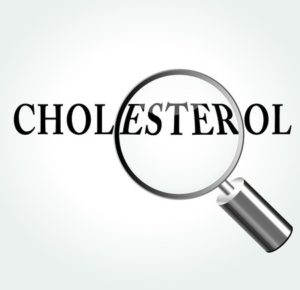Did you know that having low cholesterol is a health risk? … Here we provide insight on the health ramifications of low cholesterol.
Cholesterol Imbalance: Low Cholesterol Health Ramifications (Part 1)
Cholesterol
Cholesterol can come from the diet but it is also made in the liver. Cholesterol is a necessary building block for steroid hormones and cell membranes (including the brain cell membrane – the myelin sheath). Your body is dependent on cholesterol for its role in bile production (fat digestion), as a potent anti-inflammatory, and much more.
To maintain efficient body systems and longevity it is important to consider cholesterol balance in among the 15 metabolic syndromes associated with optimal health.
Low Cholesterol Syndromes: The BodyMindLink
Low cholesterol syndromes are associated with physical and mental health compromise. Having balanced levels of cholesterol is key to health because low cholesterol is associated with higher mortality rates from all causes (World Health Organization).
Low cholesterol syndromes include: hormone deficiency (with associated adrenal fatigue, poor libido or sexual function); poor cell membrane integrity; inadequate bile production (associated with GERD and acid reflux) and fat assimilation (includes fat soluble vitamins D, E, A, and K); immune compromise (autoimmune disease, infection risk, higher likelihood of parasitic infection); toxicity; free radical oxidation/stress (cholesterol is actually an antioxidant, i.e. a free radical scavenger and free radical damage is associated with neurological diseases, including Alzheimer’s disease); and mental state changes in mood and behavior.
Low Cholesterol: Hormone Deficiency
Cholesterol is the main building block of steroid hormones including cortisol, DHEA, estrogen, progesterone, testosterone, aldosterone, and pregnenolone.
Pregnenolone converts to several other essential hormones and it cannot be produced without cholesterol (pregnenalone is produced in the liver via the aid of the P450 enzyme system). If you lack steroid hormones you risk several problems as these molecules are associated with signaling and communication of major body system functions.
If you do not produce adequate testosterone or DHEA you will have poor libido and poor bone density. DHEA is an anti-aging hormone associated with memory acquisition.
Females with low progesterone are prone to depression, menstrual imbalances (PMS, PCOS, PMDD), and pregnancy complications. Females with low estrogen are prone to poor sexual development, poor bone growth, and poor brain function.
Without the adrenal hormone cortisol, you will lack a powerful anti-inflammatory mechanism that is needed when the immune system over-reacts (e.g. during infection or auto-immune attacks). If you fail to make or regulate cortisol you cannot respond to stress appropriately (adrenal burnout/fatigue). If your adrenal glands are burnt out your thyroid system will function poorly and you will be predisposed to several low thyroid syndromes that affect physical and mental health.
Without the aldosterone you will not be able to efficiently regulate sodium and potassium which are intimately associated with water and electrolyte balance.
Low Cholesterol Health Ramifications: A Two-Part Blog Series
Part 2 of this series will cover: poor cell membrane integrity; inadequate bile production, fat assimilation, and toxin removal; immune compromise; auto-immune compromise; free radical oxidation/stress, mental state health ramifications; and dietary cholesterol sources.
The BodyMindLink series by Dr Ray Pataracchia ND provides insight on Nutritional and Naturopathic approaches that matter most and have the potential to benefit general and mental health. In this series we look at the treatment approaches and body-mind-links for longevity/anti-aging, tiredness, mental performance, work performance, digestive problems, food intolerances, stress, cardiovascular health, insomnia, weight problems, and chronic disease. Clinical approaches discussed are implemented by the Naturopathic Medical Research Clinic in Toronto, Ontario.
Disclaimer: Information provided is not to be used for self-assessment, diagnosis or treatment. We advise the public to discuss these topics with their health care provider or book an appointment with our Toronto clinic.

